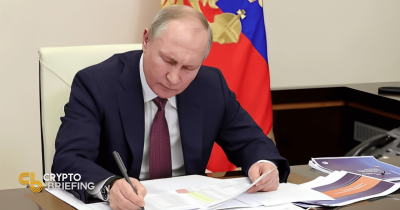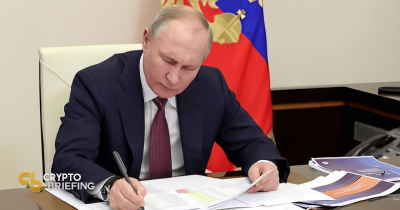Crypto
Home » Regulation » Putin signs law recognizing digital currencies as property, exempting crypto mining and sales from VAT
Crypto For profits made from buying, selling, or trading digital currencies, the applicable tax rates are set at 13% for income up to 2.4 million rubles and at 15% for amounts over that limit.

Key Takeaways
- Putin signed a law recognizing digital assets as property and introducing new tax frameworks for crypto mining.
- Crypto mining is exempted from VAT, but operators must report clients to tax authorities or face fines.
Share this article
Russian President Vladimir Putin has signed a new law that officially recognizes digital currencies as a form of property in foreign trade settlements under an experimental legal regime (ELR). Under the regulations, crypto mining and sales are not subject to value-added tax (VAT), TASS reported Friday.
Crypto transactions facilitated within the ELR are also tax-free, the report noted. Yet, mining facility operators are required to report to the tax authorities who use their services. Those who fail to submit the information on time face a fine of 40,000 rubles.
Income from mining crypto will be classified as “income in kind” and taxed at the market value, with deductions allowed for mining expenses. Meanwhile, income from acquiring, selling, or trading crypto will follow a two-tier personal tax structure. The applicable tax rates are set at 13% for income up to 2.4 million rubles and at 15% for amounts exceeding that threshold.
For corporate entities, crypto mining profits will be subject to the standard corporate tax rate of 25% starting in 2025.
Under this law, individuals and organizations engaged in crypto mining and trading are prohibited from accessing several advantageous tax regimes, such as simplified taxation systems and agricultural tax benefits. It also specifies that special tax statuses, including the patent system and self-employed classification, do not apply to crypto-related activities.
According to the report, the law is effective immediately upon official publication, although some provisions may have specific timelines for implementation. Transitional measures may also be included to help businesses adjust to these new regulations.
The move comes after Putin signed a law that defines and advances crypto mining regulations in August. The law allows only registered entities to perform large-scale operations.
This is a developing story.
Share this article

